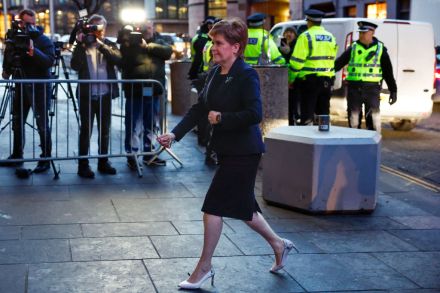Sturgeon paints herself as perfect at Covid Inquiry
10 min listen
Nicola Sturgeon became emotional during her evidence at the Covid inquiry today – a highly anticipated part of the inquiry given the issue of deleted Whatsapp messages. How did the former first minister come across today? And what else can the evidence tell us about how the Scottish government operated? Katy Balls speaks to Isabel Hardman and Michael Simmons.





















